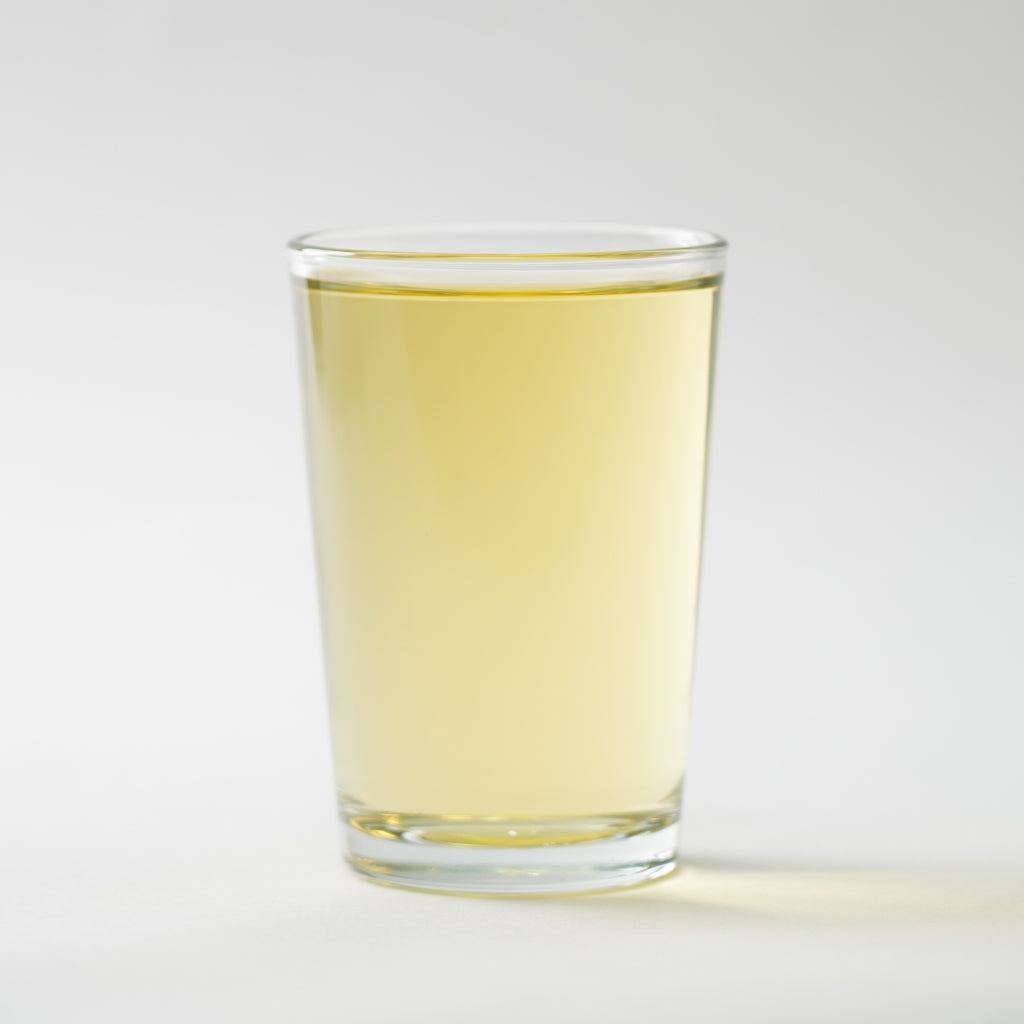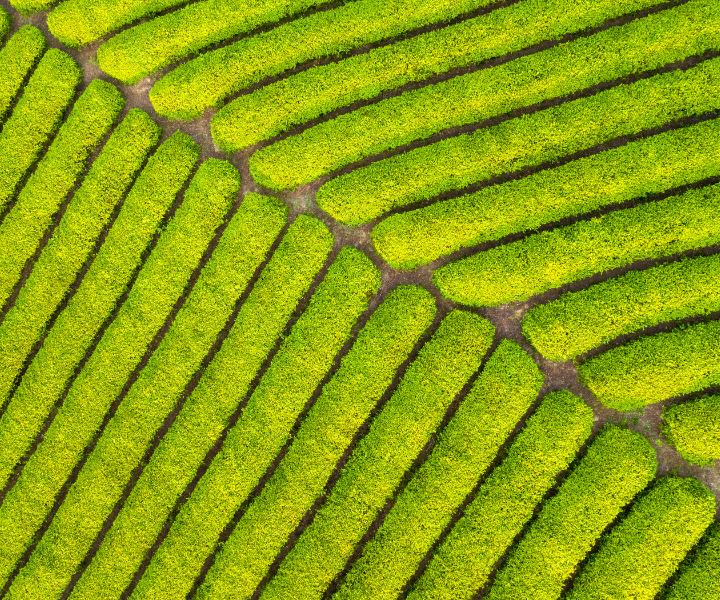
What the difference between ASAMUSHI and FUKAMUSI!

There is a Japanese tea distinguishing between ASAMUSHI and FUKAMUSHI.
Both types of tea are made from the same tea leaves. The difference is that the tea leaves are steamed at a higher temperature for a longer time in the first process after harvesting, which is called "Deep Steaming," and the tea leaves are steamed for a shorter time, which is called "Light Steaming."
So, "Light Steaming" teas are called ASAMUSHI, and "Deep Steaming" teas are called as FUKAMUSHI.
In the production of Sencha, the first step is to steam the picked tea leaves at a high temperature, a process called steaming.
Steaming stops the oxidation of the tea leaves and reduces the green smell of the fresh leaves. After the tea leaves have softened through steaming, they are rubbed and dried in several stages to produce the sencha we usually drink.
While ordinary Sencha is steamed for 30 to 40 seconds, deep steamed Sencha is steamed longer than that, for more than one minute.
What kind of tea is Fukamushi Sencha?
This explains what kind of characteristics Fukamushi-Sencha has, also introduce recommended brewing methods.
Fukamushicha is a Sencha that has been steamed for a longer period of time and has a dark green color and a mild flavor. The long steeping process reduces the astringency and fresh aroma of the tea leaves, while making the tea mellow and full-bodied.
The breakdown of the cells makes the tea leaves brittle, and powdered tea leaves leach out when the tea is brewed. This causes the tea to have a cloudy dark green color.
Fukamushi tea is characterized by the fineness of its tea leaves. The finer the tea leaves, the easier the tea tends to be extracted. Therefore, deep steamed Sencha can be brewed well even with a shorter brewing time.
If the brewing time is too long, extra ingredients may be extracted, so be careful.
What is Asamushi-Sencha?
Asamushi-Sencha means light steamed green tea has a refreshing astringency and cool taste. The steeping time is usually 30 seconds to 1 minute, whereas the steeping time for asa-mushi-tea is 10 to 30 seconds.
The tea leaves are hard due to the quick steeping process and have a needle-like spiky appearance. The tea is light yellowish green with a golden tinge and has a high transparency.
It is characterized by the original natural fresh green aroma and flavor of the tea leaves.
GYOKURO, which is called “high-class tea” in Japanese tea, is a tea finished by light steaming, and it is often produced in mountainous areas and is of high quality. The tea presented to the Emperor of Japan is basically said to be Asamushi Sencha.
Just enjoy it!
While “deep steamed” tea is easy for anyone to brew a cup of delicious tea, and the sweetness and richness can be easily obtained even with a short brewing time, the taste may suddenly decline after the second brewing.
However, “deep steamed” tea, with its fine tea leaves, is a tea that is easy to take in nutrients such as catechins because the powdered tea leaves are drunk together with the tea.
If you know the characteristics of each type of tea, you may be able to enjoy tea in a way that suits your taste at any given time.


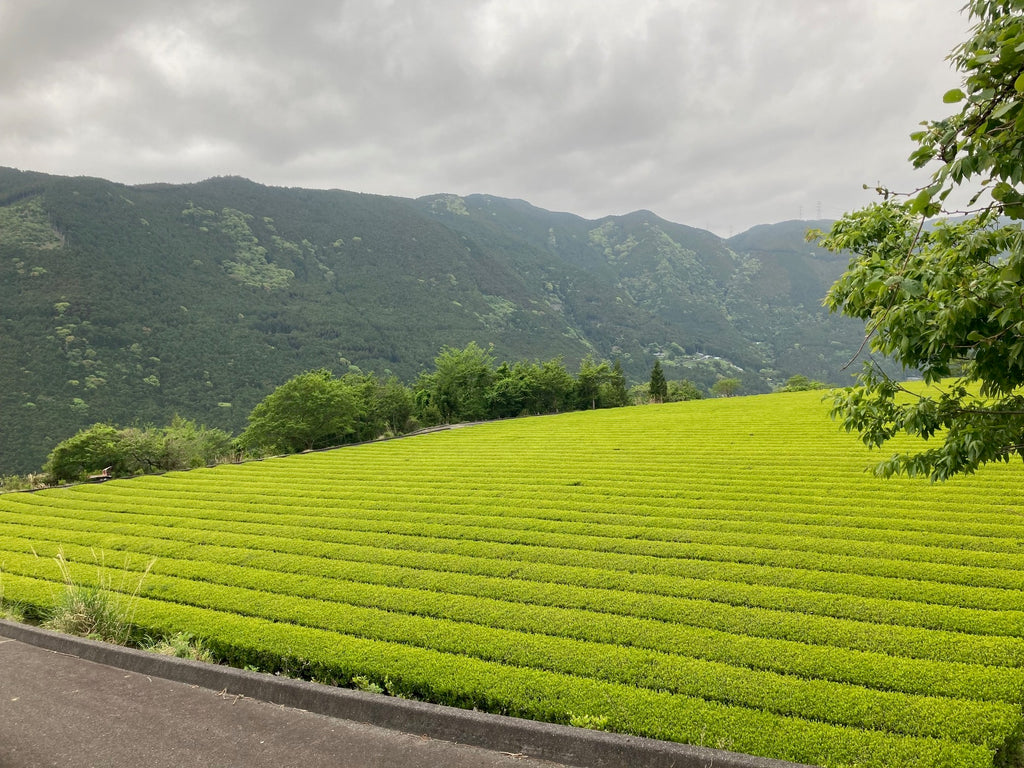
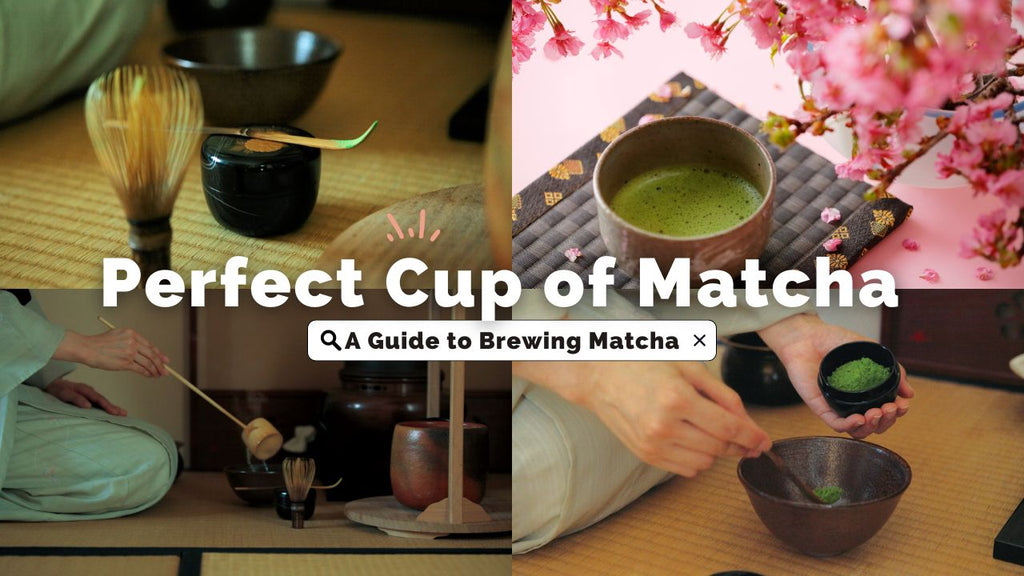
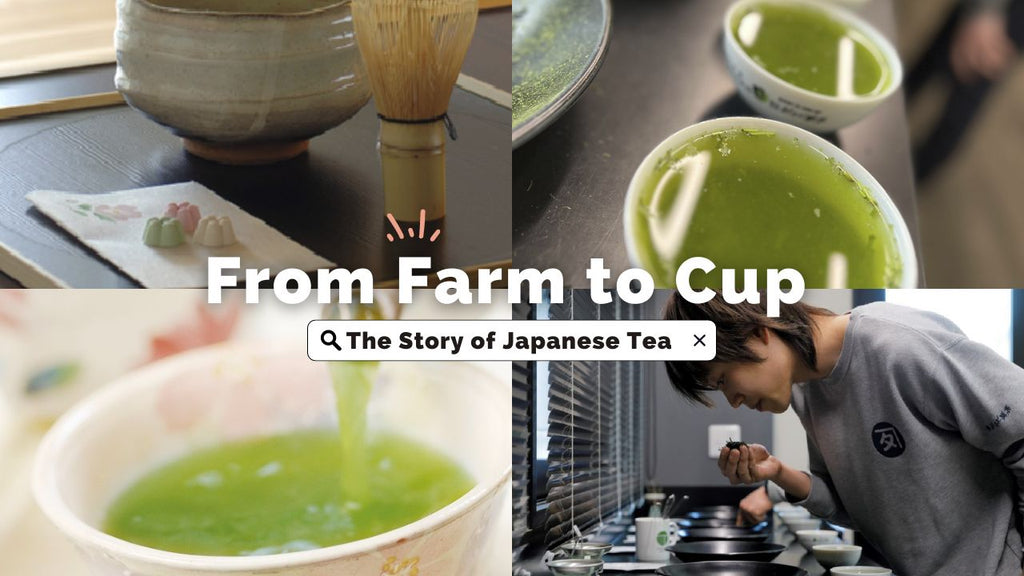
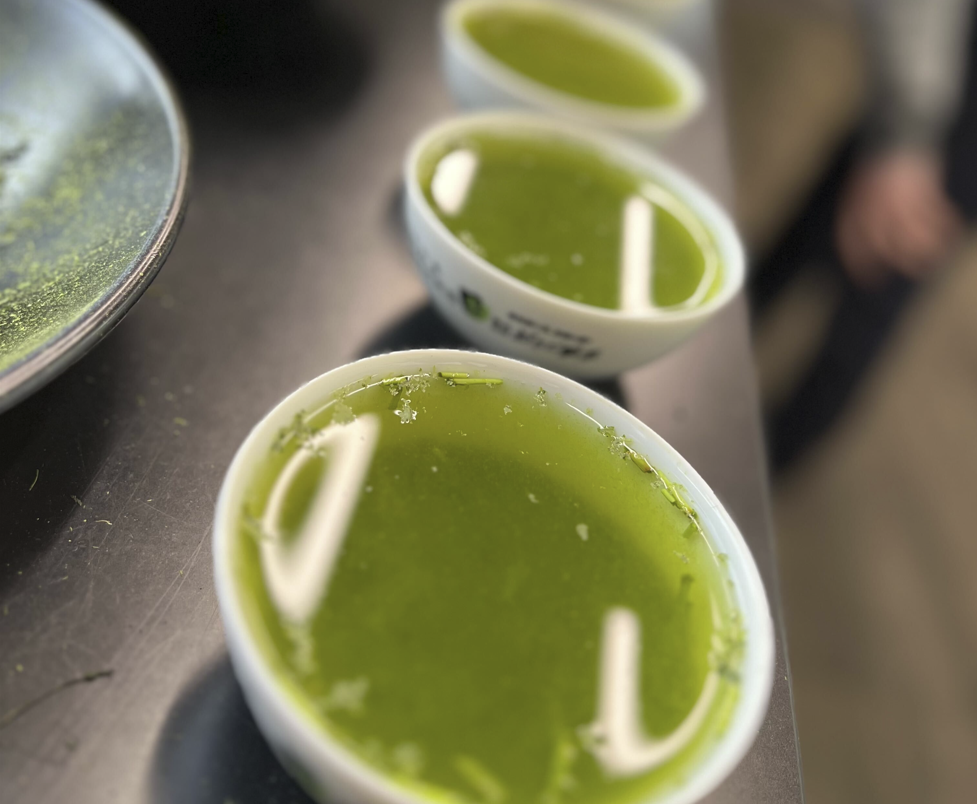

![[OT-10] MATCHA KOSHUN (20g/0.7oz)](http://osadateajapan.com/cdn/shop/products/OT-10-1-_1.jpg?v=1673502690)
![[OT-04] MATCHA NONO (20g/0.7oz)](http://osadateajapan.com/cdn/shop/products/OT-04-1-_1.jpg?v=1673502659)
![[OT-11] MATCHA OKUMIDORI (20g/0.7oz)](http://osadateajapan.com/cdn/shop/products/OT-11-1-_1.jpg?v=1673502695)
![[OT-09] MATCHA SAEAKARI (20g/0.7oz)](http://osadateajapan.com/cdn/shop/products/OT-09-1-_1.jpg?v=1673502685)
![[OT-01] MATCHA SAMIDORI TEZUMI (20g/0.7oz)](http://osadateajapan.com/cdn/shop/products/OT-01-1-c6043315-f32d-4781-9b40-c902247ddea9-_1.jpg?v=1673502644)
![[OT-02] ORGANIC NISHI MATCHA OKUMIDORI (20g/0.7oz)](http://osadateajapan.com/cdn/shop/products/OT-02-1-_1.jpg?v=1673502648)
![[OT-05] ORGANIC NISHI MATCHA TSUYUHIKARI (20g/0.7oz)](http://osadateajapan.com/cdn/shop/products/OT-05-1-_1.jpg?v=1673502663)
![[OT-16] ORGANIC MATCHA HAMANASU (20g/0.7oz)](http://osadateajapan.com/cdn/shop/products/OT-16-1-_1.jpg?v=1673502719)
![[OT-61] ORGANIC BANCHA (30g/1oz)](http://osadateajapan.com/cdn/shop/products/OT-61-1-_1.jpg?v=1673502855)
![[OT-58] ORGANIC GENMAICHA (30g/1oz)](http://osadateajapan.com/cdn/shop/products/OT-58-1-_1.jpg?v=1673502847)
![[OT-34] ORGANIC GYOKURO OKUMIDORI (30g/1oz)](http://osadateajapan.com/cdn/shop/products/OT-34-1-_1.jpg?v=1673502781)
![[OT-33] ORGANIC GYOKURO SAEMIDORI (30g/1oz)](http://osadateajapan.com/cdn/shop/products/OT-33-1-_1.jpg?v=1673502778)
![[OT-56] ORGANIC MATCHA GENMAICHA (30g/1oz)](http://osadateajapan.com/cdn/shop/products/OT-56-1-_1.jpg?v=1673502843)
![[OT-43] ORGANIC OKUMIDORI KABUSECHA (30g/1oz)](http://osadateajapan.com/cdn/shop/products/OT-43-1-_1.jpg?v=1673502808)
![[OT-40] ORGANIC SENCHA AG TSUYUHIKARI (30g/1oz)](http://osadateajapan.com/cdn/shop/products/OT-40-1-_1.jpg?v=1673502801)
![[OT-39] ORGANIC SENCHA HIRAKI ASAMUSHI (30g/1oz)](http://osadateajapan.com/cdn/shop/products/OT-39-1-_1.jpg?v=1673502798)
![[OT-27] ORGANIC OOLONGTEA GOKOU (30g/1oz)](http://osadateajapan.com/cdn/shop/products/OT-27-1-_1.jpg?v=1673502764)
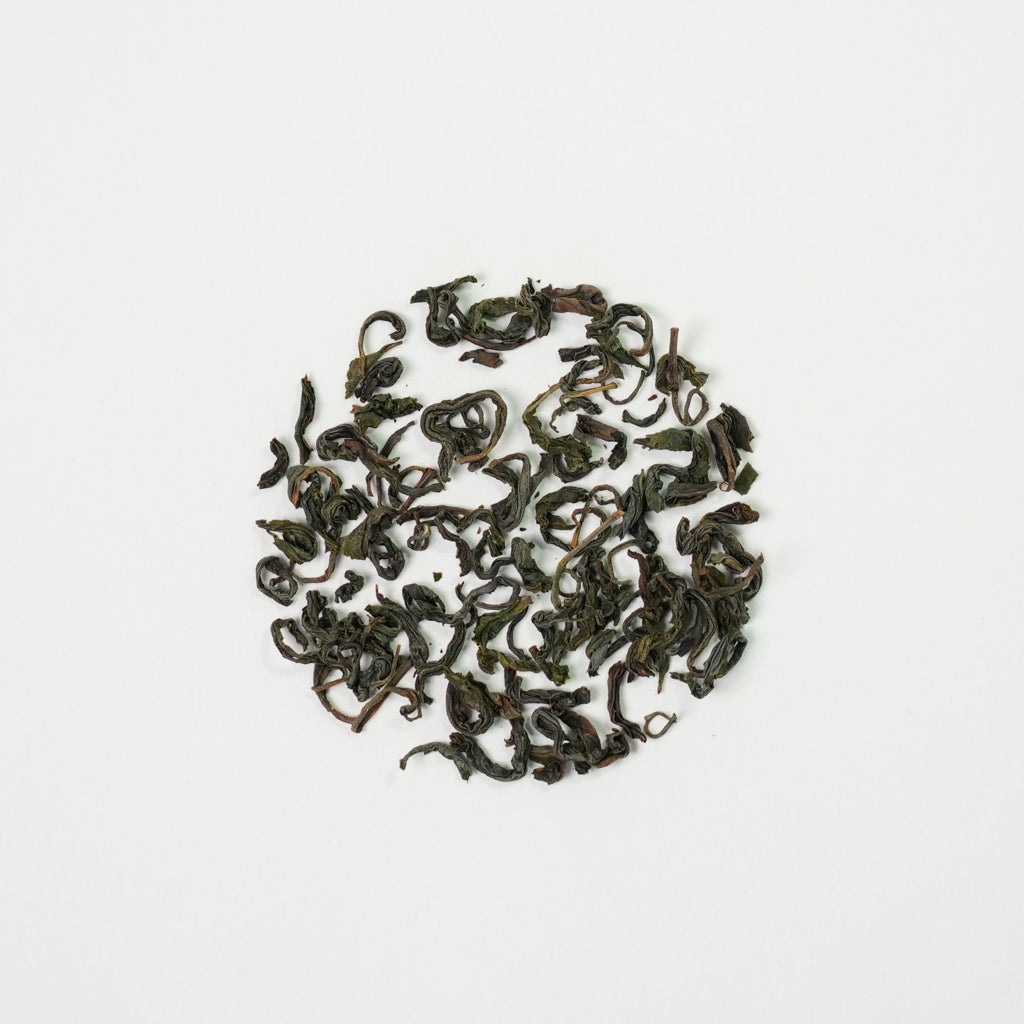
![[OT-28] ORGANIC OOLONGTEA KURASAWA (30g/1oz)](http://osadateajapan.com/cdn/shop/products/OT-28-1-1-_1.jpg?v=1673502766)
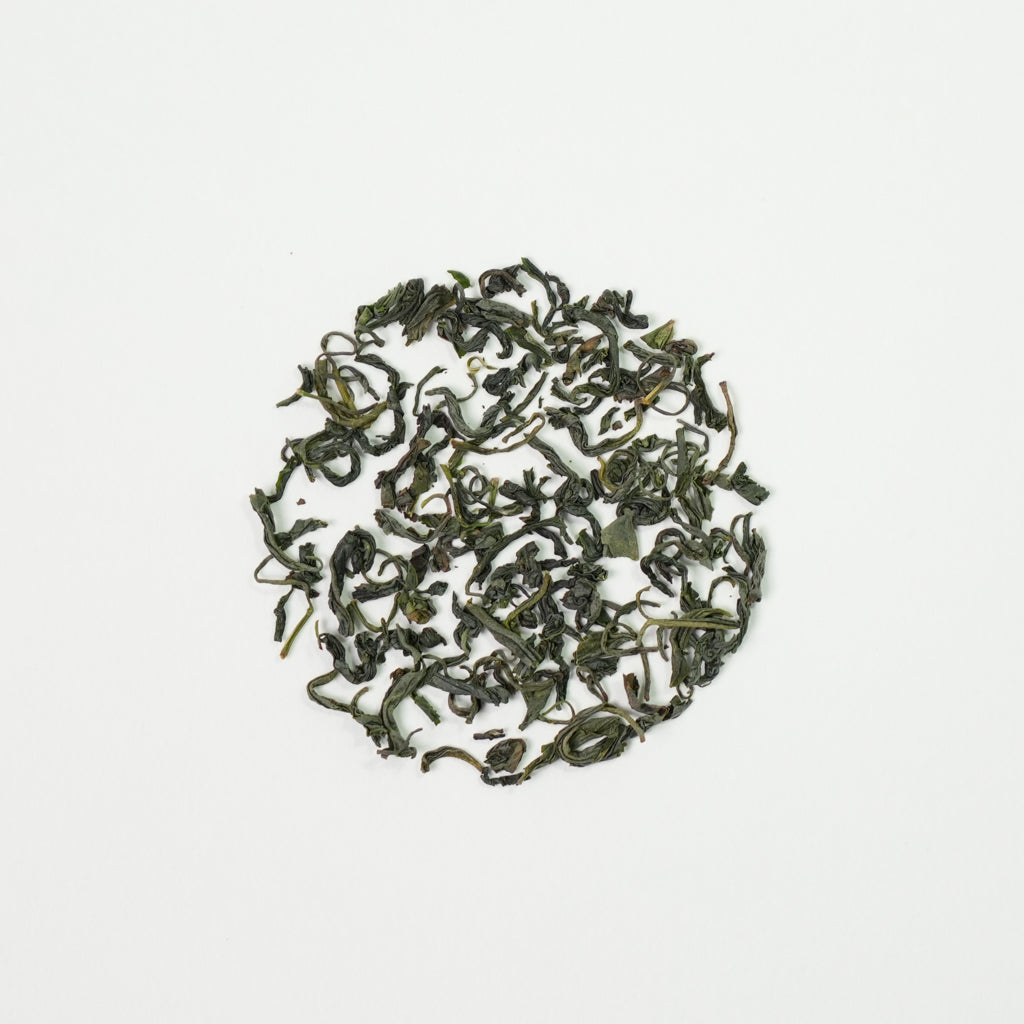
![[OT-31] ORGANIC OOLONGTEA SURUGAWASE SF (30g/1oz)](http://osadateajapan.com/cdn/shop/products/OT-31-1-_1.jpg?v=1673502772)
![[OT-26] ORGANIC OOLONGTEA TSUYUHIKARI (30g/1oz)](http://osadateajapan.com/cdn/shop/products/OT-26-1-_1.jpg?v=1673502762)
![[OT-29] ORGANIC OOLONGTEA ZAIRAI FF (30g/1oz)](http://osadateajapan.com/cdn/shop/products/OT-29-1-_1.jpg?v=1673502768)
![[OT-30] ORGANIC OOLONGTEA ZAIRAI SF (30g/1oz)](http://osadateajapan.com/cdn/shop/products/OT-30-1-_1.jpg?v=1673502770)
![[OT-04] MATCHA NONO (20g/0.7oz)](http://osadateajapan.com/cdn/shop/products/OT-04-5.jpg?v=1671249709)
![[OT-01] MATCHA SAMIDORI TEZUMI (20g/0.7oz)](http://osadateajapan.com/cdn/shop/products/OT-01-5_504055a4-6c55-440d-af84-58b806fd5bf5.jpg?v=1671136783)
![[OT-32] ORGANIC BLACKTEA BENIFUUKI (30g/1oz)](http://osadateajapan.com/cdn/shop/products/OT-32-1-_1.jpg?v=1673502774)
![[OT-32] ORGANIC BLACKTEA BENIFUUKI (30g/1oz)](http://osadateajapan.com/cdn/shop/products/OT-32-5.jpg?v=1671250277)
![[OT-50] ORGANIC KAMAIRICHA FF (30g/1oz)](http://osadateajapan.com/cdn/shop/products/OT-50-1-_1.jpg?v=1673502826)
![[OT-50] ORGANIC KAMAIRICHA FF (30g/1oz)](http://osadateajapan.com/cdn/shop/products/OT-50-5.jpg?v=1671250984)
![[OT-14] ORGANIC MATCHA KAKITSUBATA (20g/0.7oz)](http://osadateajapan.com/cdn/shop/products/OT-14-1-_1.jpg?v=1673502708)
![[OT-14] ORGANIC MATCHA KAKITSUBATA (20g/0.7oz)](http://osadateajapan.com/cdn/shop/products/OT-14-5.jpg?v=1671249965)
![[OT-07] ORGANIC MATCHA KOIAI (20g/0.7oz)](http://osadateajapan.com/cdn/shop/products/OT-07-1-_1.jpg?v=1673502675)
![[OT-07] ORGANIC MATCHA KOIAI (20g/0.7oz)](http://osadateajapan.com/cdn/shop/products/OT-07-5.jpg?v=1671249758)
![[OT-27] ORGANIC OOLONGTEA GOKOU (30g/1oz)](http://osadateajapan.com/cdn/shop/products/OT-27-5.jpg?v=1671250166)
